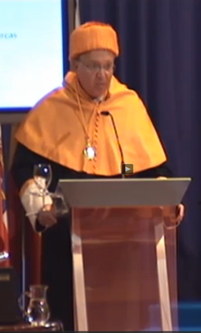
 Summary: A truly extraordinary situation at the EPO, where laws are being violated in the name of so-called 'production' and truth is treated as "defamation" and attacked vehemently
Summary: A truly extraordinary situation at the EPO, where laws are being violated in the name of so-called 'production' and truth is treated as "defamation" and attacked vehemently
SUEPO has just, for the first time in fact, mentioned denial of holidays by the EPO. We have been writing about it since early September and now there is this text about it in German [PDF].
epo.org links may be a privacy risk)
The ipkat article reads (cite): “The overwhelming majority of comments were purely libellous ad hominem attacks on a man that has not even taken office.” The man who has not even taken office can only be Campinos. I don’t remember any particular comments about Campinos in the comments, do you?
We now know that the deletion of comments on the IPKat thread was deliberate: http://ipkitten.blogspot.co.uk/2017/10/ipkat-comment-moderation-policy_25.html
We are reminded that EPO-related comments on IPKat must follow strict rules. However, it is immensely disappointing (to say the least) no attempt was made to remove only those comments that transgressed the rules.
As to whether it is correct for Merpel to assert that “The overwhelming majority of comments were purely libellous ad hominem attacks on a man that has not even taken office”, readers can judge for themselves: http://techrights.org/wp-content/uploads/2017/10/censored-by-ipkat.pdf
By my count, a total of 3 (out of 34) comments could reasonably be characterised as referring to “the character, motive, or other attribute” of Mr Campinos. Of those, only two go in any way beyond mere mention of facts regarding his background… and, in any event, seem pretty mild by the standards of blog posts even in the civilised world of IP. So, not quite an “overwhelming majority” of problematic comments, then? Unless, of course, you believe that a 6% level of (mild) “opinion-based” comments qualifies as such.
So, it seems that we are back to my initial comment – that strange things are indeed afoot in the world of (reporting on) the EPO.
Well, I read the decision, and it appears logical, but have one overrding question, and I hope somebody can answer it.
In 3.1.1.3 it says 'The successor in title ....must prove that it indeed owned...'
It is especially the requirement TO PROVE that bothers me. Where does this come from. What is its basis under the EPC? I don't see it.
If both the original owner and the successor in title certify that the transfer was effected on date X, to their satisfaction, and in a form which they found acceptable, what is the basis for a third party, or EPO, to doubt an effective transfer, and where is their basis to require proof.
As a summary this decision is nice...but still, I'd like to have seen a legal basis for the right of others to demand PROOF.